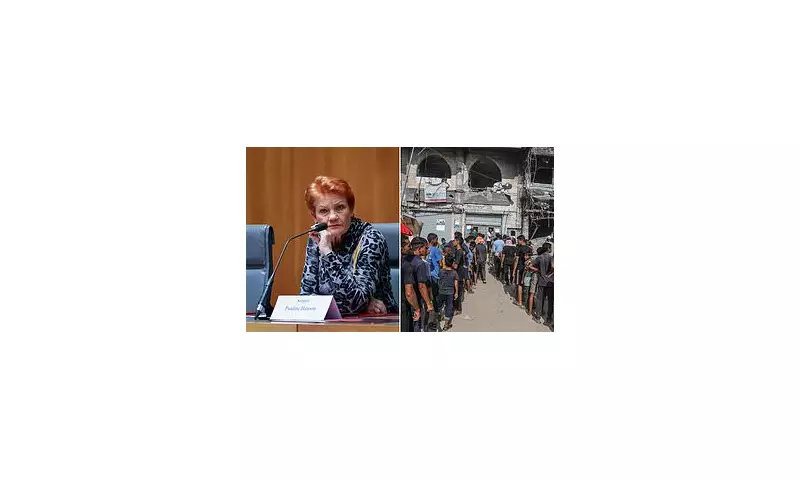
Controversial One Nation leader Pauline Hanson has ignited a political firestorm with her uncompromising stance on the Gaza refugee crisis, suggesting wealthy Islamic nations should bear responsibility for displaced Palestinians rather than Western countries like Australia.
Hanson's Provocative Proposal
In a statement that has drawn both support and condemnation, Senator Hanson declared that countries including Iran, Saudi Arabia, and Turkey possess both the "wealth and the room" to accommodate refugees fleeing the conflict between Israel and Hamas. The outspoken politician argued these nations share closer cultural and religious ties with Palestinians than Western societies.
"Why should countries like America, the UK and Australia take these people?" Hanson questioned during a recent media appearance. "They've got the money, they've got the room, and they're of the same religion and culture."
Political Backlash and Support
The senator's comments have triggered immediate backlash from political opponents and refugee advocates. Critics accuse Hanson of exploiting humanitarian crises for political gain and promoting divisive rhetoric that could inflame community tensions.
However, the One Nation leader's position has found resonance among some voters concerned about Australia's immigration levels and border security policies. Hanson defended her stance by emphasising what she sees as the importance of preserving Australia's cultural identity and social cohesion.
Broader Immigration Debate
Hanson's intervention comes amid intense global discussion about how to address the growing humanitarian crisis in Gaza. Western governments face increasing pressure to establish safe pathways for civilians caught in the conflict zone while managing domestic political pressures around immigration.
The Australian government has maintained its focus on providing humanitarian assistance through established channels while carefully navigating the complex geopolitical landscape of the Middle East conflict.
Historical Context
This isn't the first time Senator Hanson has courted controversy with her views on immigration and multiculturalism. Throughout her political career, she has consistently advocated for stricter border controls and reduced immigration, positioning herself as a voice for what she describes as "mainstream Australians" concerned about rapid demographic changes.
The latest comments reflect her ongoing campaign to influence Australia's approach to international crises and refugee intake, ensuring the debate remains at the forefront of political discourse.





